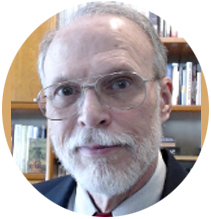
"Most scientific problems are far better understood by studying their history
than their logic."
Biologist Ernst Mayr
A PERSONAL STATEMENT
I was trained as an historian and I remain firmly convinced that a sophisticated historical consciousness is vital to any useful grasp of "how the world works." However, I do not feel entirely comfortable describing myself today as an historian. I read a lot more evolutionary biology than I do history—but then, both disciplines are really dealing with essentially the same problems. My central focus is on how we think about strategy, i.e., not how SHOULD we think about it, but how DO we think about it. Although I am almost certainly best known for my work on the ideas and impact of the German military-political thinker Carl von Clausewitz, my "Strategy: Brand X" course, which I taught at NDU for some 20 years, managed to go an entire semester without assigning a single reading either on Clausewitz or on narrative history. Instead, we took what Basil Liddell Hart would have called "an indirect approach" to the problem: We asked ourselves what ideas and experiences unconsciously shape the black box that constitutes our internal model of "how the world really works" and thus regulates our judgment of both strategic concepts and practical proposals. Most of the material we looked at is scientific in nature: nonlinear mathematics, Complexity theory, evolutionary theory (particularly as it applies to cultural evolution), J.L. Gaddis's theoretical discussion of whether history is "a science," and Gary Klein's work on decision-making theory as well as other approaches to cognitive psychology and the problem of consciousness. We then applied those ideas to understanding the nature of "strategy" as we see it play out in disparate arenas like business, religion, the operations of con artists, urban policing, and the conquest of the earth by eusocial organisms like ants and humans. The resulting strategic conversation with and amongst my students—mostly Special Forces personnel and the occasional diplomat—was, of course, shaped by their own lengthy and intense experience in the realm that more conventional approaches to strategic education treat in a much more direct and exclusive manner.

